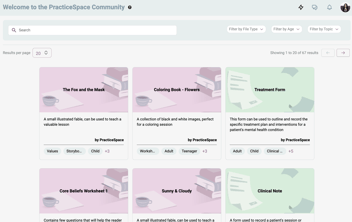Happy 2023 from the PracticeSpace Team!
This year is exciting because of the continuous advancement in digital mental health.
Here are some of the difficulties and opportunities our customers are mentioning to us:
Demand
Demand for mental health services has increased as a result of the COVID-19 epidemic, with many people reporting higher levels of stress, worry, and sadness. The Kaiser Family Foundation conducted a poll, and it found that 41% of American adults said the pandemic had a negative impact on their mental health. The need for counseling and other mental health services has increased as a result of this. It can be challenging to serve all clients’ demands, nevertheless, given the shortage of therapists.
Technology integration in therapy
During the pandemic, there was a rise in the use of teletherapy and virtual platforms for therapy sessions, and it is anticipated that this trend will continue in 2023. While technology made therapy more accessible for some, it also poses difficulties for therapists. For instance, therapists would need to learn new software skills and deal with technical challenges during sessions. When working with clients online, they might also need to take privacy and confidentiality concerns into account. Finding technology partners with competent support staff and HIPAA compliance is crucial.
Ethical Challenges
Therapists may encounter ethical difficulties in their work, such as those with boundary-crossing, dual relationships, and secrecy. For instance, it could be challenging to uphold appropriate boundaries and guarantee the client’s anonymity if the therapist has a personal connection to one of the clients. Similarly to this, therapists need to be cautious when they have a personal and professional relationship with a client because this can result in conflicts of interest. When referrals are so crucial in 2023, this can be difficult. Therapists must find a way to overcome these obstacles since they are so important in promoting the mental health and well-being of people and communities.
Looking Ahead
It is crucial for therapists to be aware of these difficulties and take action to overcome them, including looking for partners who would comply, continuing their education, establishing clear boundaries, and keeping ethical considerations in mind. Therapists can overcome these difficulties and carry on improving the lives of their clients through perseverance, a commitment to lifelong learning, and self-care.


